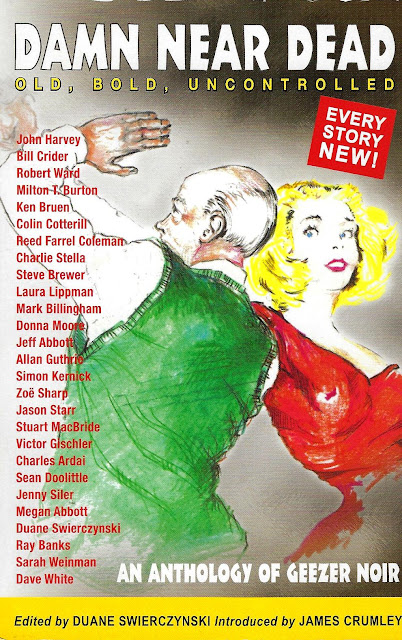I have long been a fan of Margery Allingham's novels. I read most of the books in the Albert Campion series when I was much younger, and once I started blogging in 2012, I began rereading them in order (mostly) starting with Death of a Ghost.
Today I am sharing my thoughts on one of her short stories.
"One Morning They'll Hang Him"
This is an Albert Campion short story. Chief Inspector Kenny is visiting Mr. Campion in his home, asking for his help in solving a murder. He is very sure he has the murderer in custody but he does not have a crucial piece of evidence in order to take the case to trial.
Campion asks for more information about the case. Kenny describes the victim, an elderly rich woman who lives in a big house on Barraclough road with her companion / housekeeper. Her only living relative is her nephew, who visited her often in his childhood. He returned from the war with mental problems following an injury when a bridge blew up with him on it. He has returned to London with his wife of six weeks and has a job. They need a place to live, and the nephew and his aunt have an argument when he asks her if they can live in a couple of her rooms upstairs. The couple were having dinner at the aunt's house when they argued, and they left shortly afterwards. The nephew is accused of returning to the house and shooting her with his gun; he was seen in the neighborhood shortly after she was shot.
The problem with Inspector Kenny's case is that he cannot find the gun and that is a necessary part of the evidence. The police have searched all areas where it could have been left behind or hidden. Inspector Kenny wants Campion to find the gun.
I will admit that this is not my favorite type of mystery short story, because the focus is on the puzzle. But I enjoyed it very much, and it was the combination of Margery Allingham's writing and Campion's character that made it work well for me.
"One Morning They'll Hang Him" was originally published in the August 1950 issue of Ellery Queen’s Mystery Magazine, but I encountered the story when I started reading the short story anthology Mysterious Pleasures, A Celebration of the Crime Writers' Association 50th Anniversary, published in 2003. I have many more stories to read in that anthology.
See this article at Martin Edwards website for a description of how he assembled that anthology. It also lists the other stories and authors included in the book.














